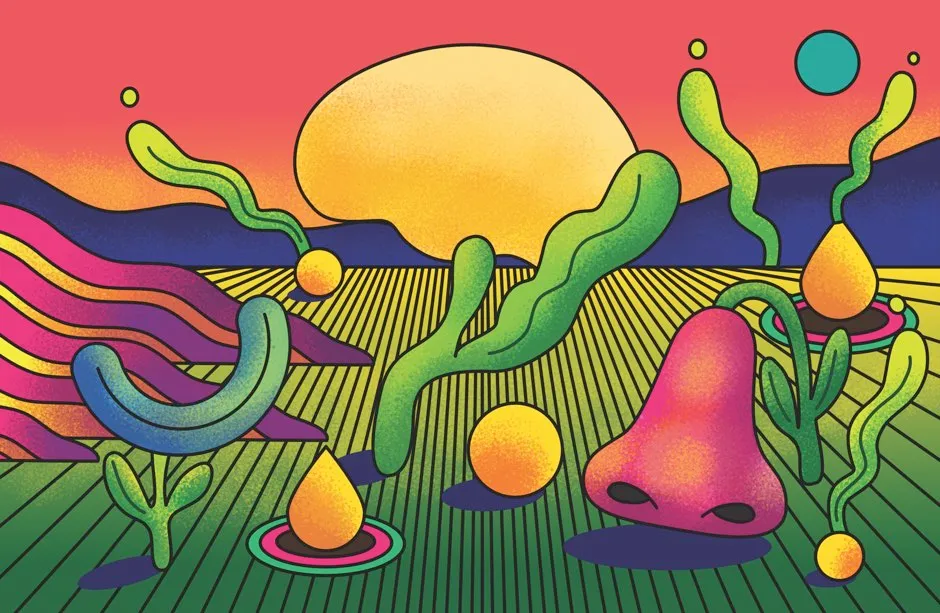Plants are smarter than most people think. Venus fly traps, for example, can count. They require two touches to spring their trap, then a further three to prompt the release of insect-digesting enzymes. Trees share nutrients via a subterranean network of fungi dubbed the ‘wood wide web,’ and when tomatoes are attacked by pathogens, they release warning chemicals to their neighbours via the same underground system.
But are they just responding passively to their environment, or could plants be thinking about their actions? It might sound far-fetched but recent experiments have prompted speculation that the leafy wonders might even be conscious.
Pavlov’s dogs famously learned to associate the random noise of a bell with a forthcoming food reward. Wondering if plants can do something similar, Monica Gagliano from the University of Sydney grew pea plants in a Y-shaped maze where they
instinctively grew towards a blue light located in one of the two arms.
She then presented the blue light alongside a gently blowing fan. A little while later, when the fan was presented alone, the plants grew towards it.
“The plants used the position of the fan to determine where the light was most likely to be,” says Gagliano.
Read more about plants:
- Which came first, the plant or the seed?
- Meet Pete the fern, the world's first entirely plant-powered photographer
- Is it true that you shouldn’t keep plants in the bedroom?
Writing in an opinion piece, Gagliano says the study hints that plants can learn and remember in an animal-like way, and if this is the case, it raises the possibility that they might be conscious.
Her critics were scathing. Plant biologist Lincoln Taiz from the University of California, Santa Cruz, is both underwhelmed by Gagliano’s data, and quick to point out that plants simply don’t have the hardware for consciousness.
“Plants don’t have brains or nerve cells,” he says, but Gagliano counters that plants do have a nervous system of sorts. A recent study showed how a chemical messenger called ‘glutamate’ triggers waves of calcium ions that spread through a plant in much the same way that an electrical impulse travels through an animal.

If plants are conscious, we shouldn’t expect the mechanics to look identical, says Gagliano. After all, plants and animals share only the most distant of evolutionary ancestors.
Taiz is concerned that Gagliano is anthropomorphising her research subjects and thinks that all these plant behaviours can occur in the absence of an animal-like consciousness.
Gagliano, however, is circumspect. “I’m not saying that plants are conscious,” she says, “but I am saying we should be open minded.”
Consciousness is hard to define and even harder to prove. At present, there is no experimental evidence to suggest that plants are conscious, but there’s also no experimental evidence to suggest that plants aren’t conscious.
“Studies like mine could be used as framework to explore this issue,” she says. “What we need, is data.”
Read more wild ideas in science:
As Albert Einstein once said, “imagination is more important than knowledge.” So with that in mind, here are our picks of the most radical theories in science.

